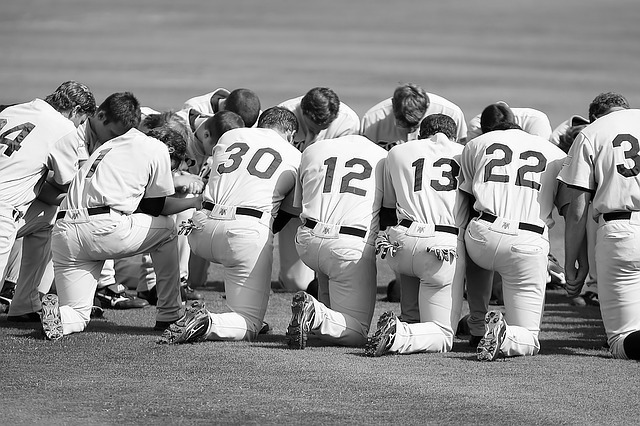
Someone once asked Pope John XXIII how many people worked in the Vatican. His answer was: “About half of them.”
This does not surprise us. We know from experience that many people on a payroll do more coasting than working.
In sports we know that if one team member starts “sliding” in his or her role, the whole team suffers. Opposing coaches look for the weak link in a team and direct their offense accordingly.
St. Paul reminded the Roman Christians that they were a “team.” They were not a congregation in which a handful did the work, and the rest “coasted.” (Romans 12:5-16).
“We, though many, are one Body in Christ, and individually parts of one another. Since we have gifts that differ according to the grace given to us, let us exercise them.”
We know how our body parts depend on each other, and how our whole lives are changed if just one of these parts quits functioning. A friend, for example, is dealing with bladder mal-functioning. This is just one small part of a complex system, but the whole system shuts down when it doesn’t work properly. As a result he has been put out of commission for weeks.
Do we agree with St. Paul’s image of the Church? Do we believe that we are “individually parts of one another?” Do we believe that we quit using the “grace given to us,” the whole Body of Christ is in trouble? Getting more practical about it, do we even know our gift in the Body?
Paul goes on to list seven “graces” that are absolutely needed in the Body of Christ. These “graces” are distributed among the members; the pastor of a parish does not have the “corner of the market” on gifts.
“If prophecy, in proportion to the faith; if ministry, in ministering; if one is a teacher, in teaching; if one exhorts, in exhortation; if one contributes, in generosity; if one is over others, with diligence; if one does acts of mercy, with cheerfulness.”
How many of these essentials gifts are operative in our parishes? Do we depend on the pastor, for example to do all the prophecy, ministering, teaching, exhorting, leading, and works of mercy? Not only is this unfair, it doesn’t work. One pastor, no matter how talented, has not been given all these graces.
So we ask ourselves, which of these seven gifts do I have? How am I developing this gift? When I go to Church Sunday morning, how do I expect to use my grace in helping out the Body of Christ? We know that the priests, deacons, sacristans take much time preparing for their part at Mass. Our deacon, for example, spends about twelve hours praying and studying in preparing a ten-minute homily. How much time do I spend praying and preparing to use the grace given me?
In today’s gospel story (Luke 14:15-24) we read the familiar parable of the man who threw a great dinner and invited many. When he sent out invitations,
“one by one, they all began to excuse themselves.”
Their excuses are familiar ones—work commitments, family issues, property responsibilities. Jesus concluded:
“…none of those who were invited will taste my dinner.”
We do not have the luxury of excuse-making. The Body of Christ is hurting. Even if pastors are doing their best, that is not enough. Each of us is called to identify and activate the grace that we have been given.
“Do not grow slack in zeal, be fervent in spirit, serve the Lord” (Romans 12:11).
